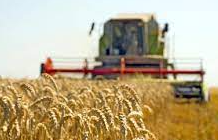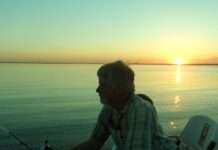David Koch, who built one of the nation’s largest private businesses with his brother Charles and pumped money into conservative groups to help reshape American politics, has died.
Charles Koch confirmed the news in a statement on Friday that referenced David’s long-running ailment.
“Twenty-seven years ago, David was diagnosed with advanced prostate cancer and given a grim prognosis of a few years to live. David liked to say that a combination of brilliant doctors, state-of-the-art medications and his own stubbornness kept the cancer at bay. We can all be grateful that it did, because he was able to touch so many more lives as a result,” Charles Koch wrote.
No precise cause was given for David Koch’s death. He was 79.
David Koch helped his brother Charles build Koch Industriesinto a behemoth that incorporates brands such as Georgia Pacific plywood. The company is one of the biggest ethanol producers in the country. Its Cordura cloth is used to make military uniforms and equipment.
The two brothers also created the Koch political network, famous and infamous for its secret funding and fiercely negative advertising — which often aimed at President Barack Obama and other Democrats.
Their group, Americans For Prosperity, was funded with Koch brothers’ money as well as contributions from other rich donors they recruited. And although David denied giving money to Tea Party candidates, in 2010, the brothers’ efforts helped Republicans win a net gain of 63 seats in the House.
The Koch network also had groups aimed at veterans, women, seniors and Latinos. Ostensibly nonpolitical, the groups exploited a lack of transparency under U.S. law, weak enforcement by the IRS and openings created by Supreme Court decisions.
The system was part of what was called a stream of “dark money” by its critics, so called because it could be unclear who was bankrolling which causes.
For as much energy as the Koch network expended against Democrats since the turn of the 21st century, the brothers did not support Donald Trump in 2016, leading to fissures within the conservative donor world.
Trump responded by slamming what he called the “globalist” Koch brothers and vowing to pursue the tariffs and immigration crackdowns they opposed.
Robin and Batman
The Koch network amassed as much clout as the Republican National Committee, or perhaps even more.
All the same, David Koch was not a doctrinaire Republican. In 1980, he was the Libertarian nominee for vice president. And although the brothers’ network backed conservative lawmakers who opposed abortion access and gay rights, Koch supported them.
“I’m a social liberal,” Koch told ABC’s Barbara Walters in 2014.
He also was a fiscal hawk and outlined one of his core concerns in that interview: “I’m very worried that if the budget is not balanced, that inflation could occur and the economy of our country could suffer terribly,” he said.
David Koch and his three brothers grew up in Wichita, Kan., sons of oil industry tycoon Fred Koch. Charles and David eventually became co-owners of Koch Industries.
Charles ran the company but David stayed involved, even after he moved to New York City. He was a fixture on the Manhattan social scene and a major donor to the city’s cultural institutions, including the David H. Koch Theater, at Lincoln Center and the American Museum of Natural History.
Daniel Schulman, author of Sons of Wichita: How the Koch Brothers Became America’s Most Powerful and Private Dynasty, told NPR that David Koch often was the follower and Charles the leader.
“David Koch has always been the Robin to Charles Koch’s Batman, more or less the sidekick,” Schulman said. “Up into his late 40s, maybe even early 50s,” Schulman said, David “was kind of living this New York socialite, playboy lifestyle. And he loved that sort of thing.”
In 1991, Koch was aboard an airliner that collided with another aircraft on a runway at Los Angeles International Airport. More than 30 people died, and Koch barely escaped.
As he later told Barbara Walters, “I felt the good Lord was sitting on my shoulder.”
The year following the plane crash, he was diagnosed with prostate cancer.
The philanthropist
Koch turned to philanthropy, giving mainly to causes he was familiar with, including medical research, the arts and museums.
In 2011, he recounted how he persuaded his alma mater, the Massachusetts Institute of Technology, to build a center to research prostate cancer.
“With tears running down my face, I begged the MIT corporation to commit to this essential project. I was treated to a standing ovation,” he said.
Koch left politics and Koch Industries in 2018, citing unspecified health issues.
NOEL KING, HOST:
Philanthropist and political activist David Koch has died. He and his brother Charles were worth tens of billions of dollars apiece. They transformed American politics by creating a network of secretly funded organizations that attacked Democrats and promoted conservative causes. David Koch was 79 years old. NPR’s Peter Overby reports.
PETER OVERBY, BYLINE: David Koch helped his brother Charles build Koch Industries into one of America’s largest private businesses Its brands include Georgia Pacific plywood and Lycra fabric. The two brothers also created the Koch political network, famous for its secret funding and fiercely negative advertising when Barack Obama was president.
(SOUNDBITE OF MONTAGE)
UNIDENTIFIED NARRATOR #1: Tell President Obama American workers aren’t pawns in your political games.
UNIDENTIFIED NARRATOR #2: Earl Pomeroy cast his vote. Tell him North Dakotans won’t forget.
UNIDENTIFIED NARRATOR #3: Tell Mike McIntyre his policies are killing jobs. Americans for Prosperity is responsible for the content of this advertising.
OVERBY: Americans for Prosperity boosted the Tea Party movement. The Koch brothers funded AFP with money from themselves and other rich donors they recruited. Here’s David Koch at a gathering in 2010, the year AFP rallied Tea Party voters to elect record numbers of Republicans to Congress.
(SOUNDBITE OF ARCHIVED RECORDING)
DAVID KOCH: Five years ago, my brother Charles and I provided the funds to start the Americans for Prosperity. And its beyond my wildest dreams how this – AFP has grown into this enormous organization.
OVERBY: Besides AFP, the Koch network had groups aimed at veterans, women, seniors and Latinos. Ostensibly non-political, the groups exploited the lack of transparency, weak enforcement by the IRS and Supreme Court decisions. The system was tagged dark money by its critics.
The Koch network amassed as much clout as the Republican National Committee, maybe even more – this even though David Koch was not a doctrinaire Republican. In 1980, he was the Libertarian nominee for vice president. He supported abortion rights and gay rights, while the network backed conservative lawmakers opposed to both. In 2014, he explained it this way to Barbara Walters of ABC News.
(SOUNDBITE OF TV SHOW, “THIS WEEK”)
KOCH: I’m very worried that if the budget is not balanced that inflation could occur and the economy of our country could suffer terribly.
OVERBY: David Koch and his three brothers grew up in Wichita, Kan., the sons of oil industry tycoon Fred Koch. Charles and David eventually became co-owners of Koch Industries. Charles ran the company, and David stayed involved even after he moved to New York City.
DANIEL SCHULMAN: David Koch has always been the Robin to Charles Koch’s Batman – more or less the sidekick.
OVERBY: Daniel Schulman wrote the book “Sons Of Wichita: How The Koch Brothers Became America’s Most Powerful And Private Dynasty.” He said, in the network, Charles Koch was the strategist, and David Koch was the front man.
SCHULMAN: Up unto his late 40s, maybe even early 50s, he was kind of living this New York socialite, playboy lifestyle. And he loved that sort of thing.
OVERBY: But in 1991, Koch was in an airliner that collided with another plane on a runway. Thirty-five people died. He barely escaped. As he later told Barbara Walters…
(SOUNDBITE OF TV SHOW, “THIS WEEK”)
KOCH: I felt that the good Lord was sitting on my shoulder.
OVERBY: The year following the crash, he was diagnosed with prostate cancer. He turned to philanthropy, giving mainly to causes he was familiar with – medical research, the arts and museums. In 2011, he recounted persuading his alma mater, MIT, to build a center to research prostate cancer.
(SOUNDBITE OF ARCHIVED RECORDING)
KOCH: With tears running down my face, I begged the MIT Corporation to commit to this essential project. I was treated to a standing ovation.
OVERBY: The generosity often had a personal touch. John Damgard and David Koch were teammates on their prep school basketball team. Decades later, Damgard needed heart surgery.
JOHN DAMGARD: David just says, I’m able to do this, so don’t worry about it.
OVERBY: Damgard went to New York.
DAMGARD: I had the best surgeon. People waited years or at least months to get Carl to do the work. Carl said, you’re a friend of Mr. Koch’s? I said, I am. I’m a very good friend of Mr. Koch. He said, you name the time.
(Kansas News Service)
kcur.org



